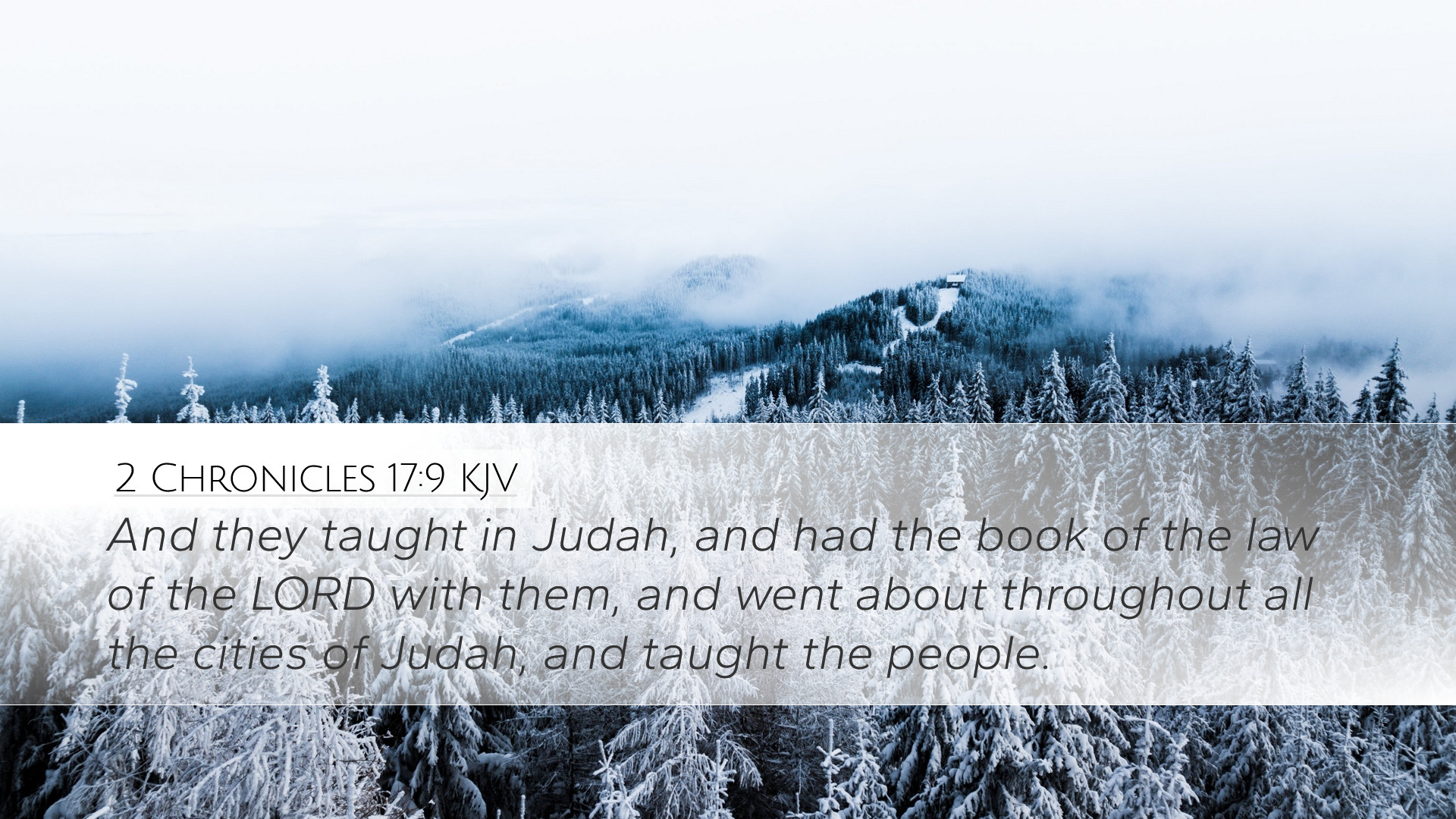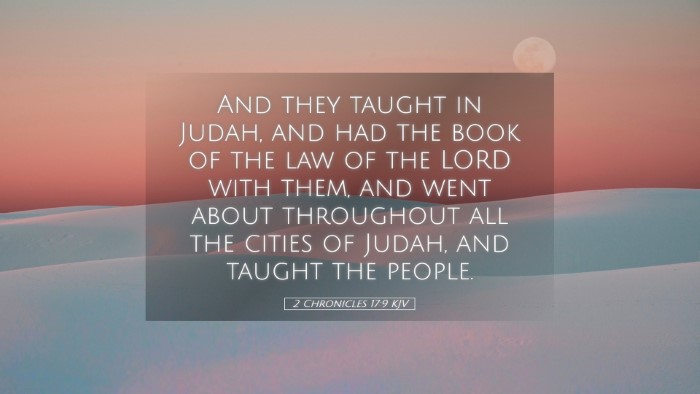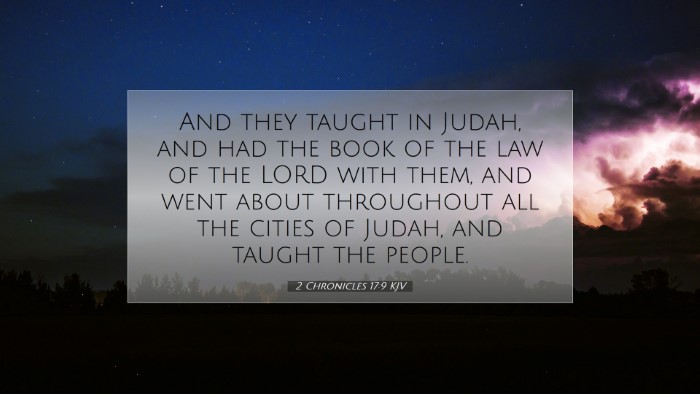2 Chronicles 17:9 Commentary
Verse: "And they taught in Judah, and had the book of the law of the LORD with them, and went about throughout all the cities of Judah, and taught the people."
Introduction
The verse 2 Chronicles 17:9 encapsulates a significant moment in the reign of King Jehoshaphat of Judah, highlighting the important role of scriptural instruction in the governance and spiritual life of the nation. In this commentary, we delve into the insights from public domain sources such as Matthew Henry, Albert Barnes, and Adam Clarke to explore its theological implications and applications for today's readers.
Historical Context
To appreciate the weight of this verse, it is essential to understand the backdrop of Jehoshaphat's reign. He ascended to the throne in a period marked by political instability and moral decay. Jehoshaphat's efforts to revitalize worship in Judah included appointing judges and sending out teachers to instruct the people in the law of God, hence fulfilling a divine mandate.
1. Jehoshaphat's Reforms
Matthew Henry emphasizes that Jehoshaphat sought to make a notable reformation among his people. His efforts reflect a recognition that knowledge of the law was pivotal for genuine worship and lawful governance.
2. The Role of the Book of the Law
Albert Barnes points out that the "book of the law" was integral to the religious life of Israel, serving as both a guide and a reminder of their covenant with God. This emphasizes the importance of Scripture in guiding the moral and ethical behaviors of society.
Teaching and Instruction
In this verse, we see Jehoshaphat's commitment to teaching the people. Adam Clarke notes that teaching the law of God was not solely an act of instruction but also a means of transforming the hearts of the people towards God.
1. The Method of Teaching
- Traveling teachers: The teachers did not remain stationary; they went from city to city, indicating a proactive approach to disseminate knowledge and inspire spiritual awakening.
- Community involvement: Engaging communities through teaching fostered a collective responsibility for spiritual renewal and personal holiness.
2. The Importance of Prayer and Dependence on God
Henry notes that such endeavors were not merely educational but required reliance on divine guidance. Without prayerful dependence on God, the reforms would lack any real significance or strength.
Theological Implications
The integration of teaching and the law points to a vital theological truth: God desires an informed and devoted people. This is reflected in numerous places throughout Scripture, where instruction is linked to obedience and covenant faithfulness.
1. The Covenant and Its Implications
Barnes reminds us that teaching the law was part of a larger covenantal relationship. In his covenant with Israel, God established expectations for their conduct, which included knowing His laws. Failure to teach and adhere to these laws could lead to spiritual and communal decay.
2. The Nature of God’s Law
Clarke emphasizes that the law serves as a means of grace, designed to lead the people towards holiness. The law is not merely a set of rules but a reflection of God's character and His desires for humanity.
Application for Today’s Believers
The relevance of 2 Chronicles 17:9 transcends its historical context, offering profound insights for modern believers, including pastors, students, and theologians.
1. The Role of Scripture in Teaching
Today, the church faces the challenge of engaging believers with the Word of God in a meaningful way. The example of Jehoshaphat's reforms should inspire current leaders to prioritize biblical teaching as essential for spiritual growth:
- Empowered Teaching: The mandate to teach must be paired with a deep engagement in Scripture, ensuring that true understanding is communicated to all generations.
- Community Engagement: Just as Jehoshaphat's teachers traveled through cities, churches today must actively seek opportunities to reach their communities with the gospel message.
2. Responsibility of Believers
Every believer has a responsibility to know God's Word and to share it with others. The commitment to teaching underscores the call to disciple one another, fostering a vibrant community anchored in biblical truth.
3. Prayer as Foundation
Finally, just as Jehoshaphat understood the necessity of prayerful dependence, contemporary Christians are called to seek God's wisdom and guidance as they engage in teaching and living out the Gospel.
Conclusion
2 Chronicles 17:9 provides rich soil for reflection and action. Through the lens of historical context and theological principles, we see the necessity of Scripture, the importance of teaching, and the eternal relevance of God's Word in shaping both individuals and communities. For pastors, students, theologians, and scholars, this verse stands not only as a historical narrative but as a timeless mandate for discipleship and spiritual formation in today's world.


